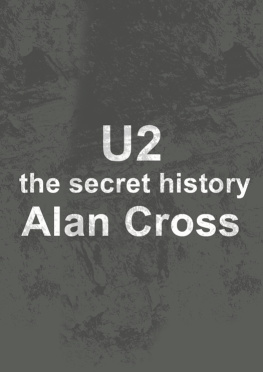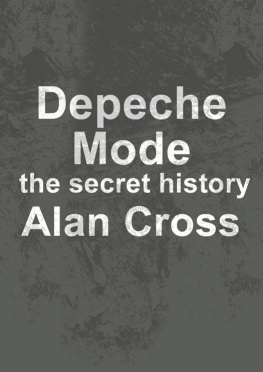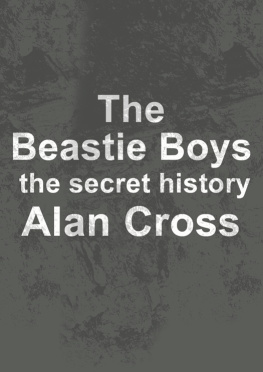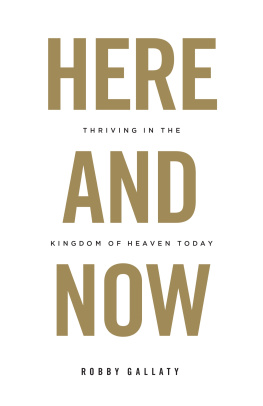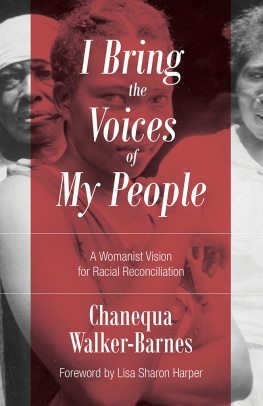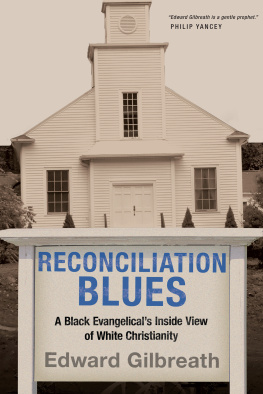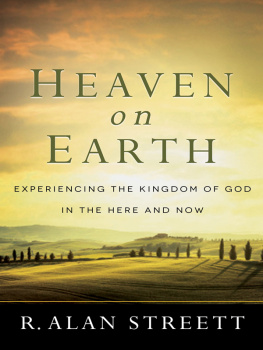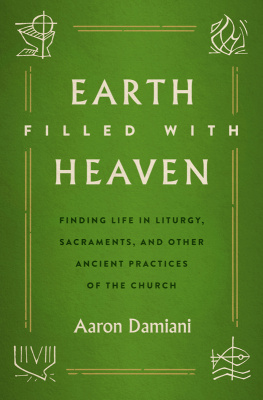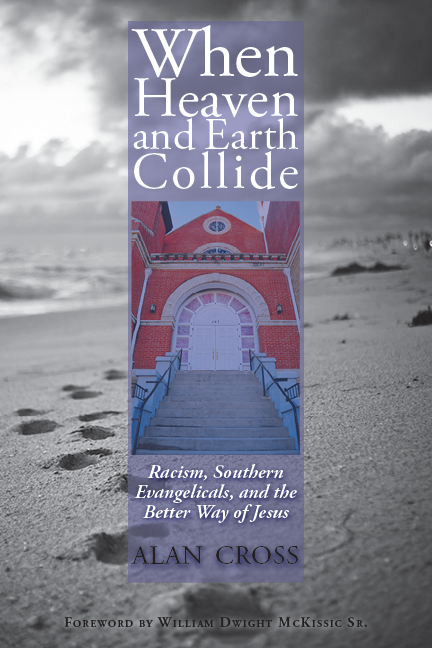When Heaven and Earth Collide
Racism, Southern Evangelicals, and the Better Way of Jesus
Alan Cross
Foreword by William Dwight McKissic Sr.
N EW S OUTH B OOKS
Montgomery
NewSouth Books
105 S. Court Street
Montgomery, AL 36104
Copyright 2014 by Alan Cross. All rights reserved under International and Pan-American Copyright Conventions. Published in the United States by NewSouth Books, a division of NewSouth, Inc., Montgomery, Alabama.
ISBN: 978-1-60306-350-0
eBook ISBN: 978-1-60306-356-2
Library of Congress Control Number: 2014004624
Visit www.newsouthbooks.com
Scripture quotations taken from the New American Standard Bible, Copyright 1960, 1962, 1963, 1968, 1971, 1972, 1973, 1975, 1977, 1995 by The Lockman Foundation (www.Lockman.org). Used by permission.
Front cover background image, Randy Hines/istockphoto; inset photo of Montgomerys black First Baptist Church, by the author.
Publishers Statement
The mission of NewSouth Books includes the publication of books that examine history and culture, particularly Southern history and culture. We believe in a progressive, democratic society with equal treatment for all with protection of the human and civil rights and liberties of all its people. We endorse the authors call for Southern whites to acknowledge and repent for slavery and segregation. However, the opinions and theological views expressed in the book do not necessarily represent those of the Publisher.
To Freedom Riders of All Kinds
Who Live To Tell a Better Story
Contents
Foreword
William Dwight McKissic Sr.
Alan Cross dares to go where most white Christian evangelical pastors and their churches have refused to venture. I commend his thorough investigation into the church in the segregated South before, during, and after the civil rights era. Cross has debunked the biblical defense used by white Christians that justified racism and hatred toward blacks and that continued to allow oppression because of the color of an individuals skin.
Cross has done an excellent job revealing how the hatred, racism, prejudice, and self-preservation of white self-professed Christians in the Bible Belt/Deep South continues to affect the church today. Although the cruelty that plagued the South was originally economically driven, Cross revealed how it was possibly covered and co-opted through the silence and cooperation of high-profile white pastors, Christian leaders, and the church.
From the beginning of this book to its conclusion, Cross provides powerful insight into the hearts of Southern white evangelicals, the oppression of blacksincluding evangelical Christian brothers of their oppressorsand biblical insights concerning the heart of Jesus on these issues. He has eloquently provided a biblical solution to an ongoing problem... as we see Heaven and Earth collide. His account of what happened is the best I have read from a son of the South and a white Baptist/evangelical pastor and author.
Speaking personally as an African American Southern Baptist pastor, I believe the silence of the white evangelical churches prolonged the agony and pain of the Jim Crow era. The residual effect of their silence manifests itself today in the controversial distance and distrust that, for the most part, black churches and black Christians have toward the white evangelical church. The white evangelical church keeping silent on these issues was just as sinful as Saul, later renamed Paul, holding the cloak for those who stoned Stephen. It would have been impossible for Jim Crow segregation to have been birthed and maintained without the approval of the white evangelical church. But not only were white evangelicals silent, they provided the theological underpinning of segregation with the doctrine of the curse of Ham, which was prominently taught and practiced in that era. Up until this very moment, no predominantly white evangelical denomination has officially repented for teaching, preaching, and publishing that wrongful, hurtful doctrine.
The voice of Alan Cross represents today the voice, courage and character of those brave white and Jewish advocates and allies of Martin Luther King Jr. during the civil rights movement. May his tribe increase!
The division which began with black slavery continues through the identity of the majority of our churches continuing to fall into the category of white or black. The division continues through secular voting patterns falling along the lines of social economic justice for blacks and moral issues for whites. The division continues through our inability to cooperate and work together and has resulted in secular forces being able to make major headway toward legalizing same-sex marriage throughout America. Black and white evangelical churches are in agreement that same-sex marriage is sinful. Yet, because of the division and our distinct voting patterns, the church is politically impotent to effectively address and redress this issue.
To bridge this historic divide and grow together according to the unity we have in Christ: we need to unify around Christ and His Kingdom as opposed to any denomination or doctrine; and we need to unify around justice issues and righteousness issues as opposed to highlighting one without the other. The bottom line is: our unity should be based on one Lord, one faith, and one baptism, as opposed to one political party, one denomination, or one way of thinking.
Beyond the issue of race, the sins of secularism, culture-centeredness, comfort, convenience, and being lovers of pleasure more than lovers of God have become our common pursuits across all color lines. The church as a whole is becoming more secular-driven than scripture-driven. The continued existence of segregated churches speaks loudly and clearly to the fact that we value our cultural approaches to worship as much as we value the cross of the Lord Jesus Christ. If our churches were more cross-centered, they would be more culturally integrated.
I would love to see less attention and focus placed on the racial divide and more attention given to our common roots and heritage in Christ. I would like to see black and white churches engage in mission projects together where interracial relationship is a byproduct while the main goal is to advance the Kingdom of God. I would also love to see all churches planted by evangelicals in the twenty-first century be intentional interracial church plants. The day of segregated church plants should be over. We should not continue the sins of our fathers.
Should Sundays remain the most segregated day in America? Billy Graham originated the statement and Martin Luther King Jr. popularized it. Nevertheless, it is still an indisputable fact that Sunday Morning at 11:00 is the most segregated hour in America. Regrettably, the quote is as true today as it was the day Graham first uttered it. However, I must hasten to raise the question: Should Sundays remain the most segregated day in America? Are there justifiable reasons for segregated churches and church plants in the twenty-first century? The first Gentile congregation did not start out segregated. It was begun by a multi-ethnic team in a multi-ethnic city, resulting in a multi-ethnic congregation with a multi-ethnic leadership team from Africa, Asia, and Europe (Acts 13:1).
There are those who believe churches should remain segregated. They cite historical and cultural development and differences as reasons why interracial congregations wont work. The problem with this position is that we are really saying that tradition and culture are stronger than the gospel. I believe that the Word of God has the power to break racial strongholds on the church.




